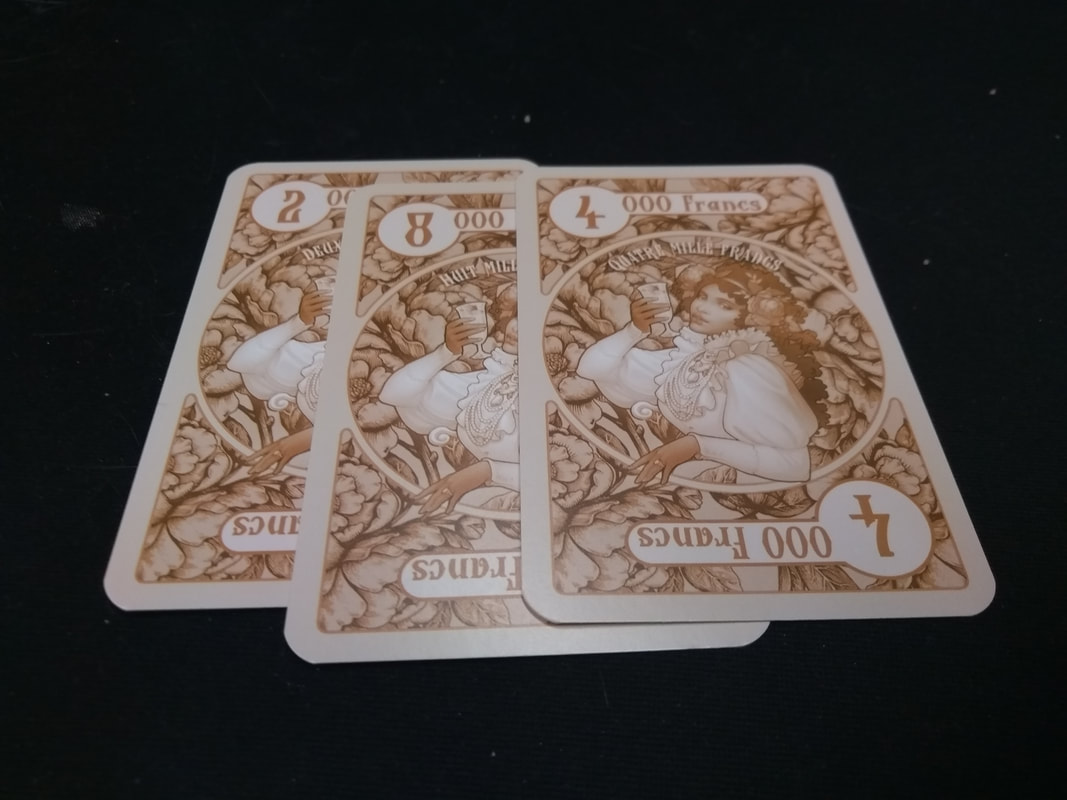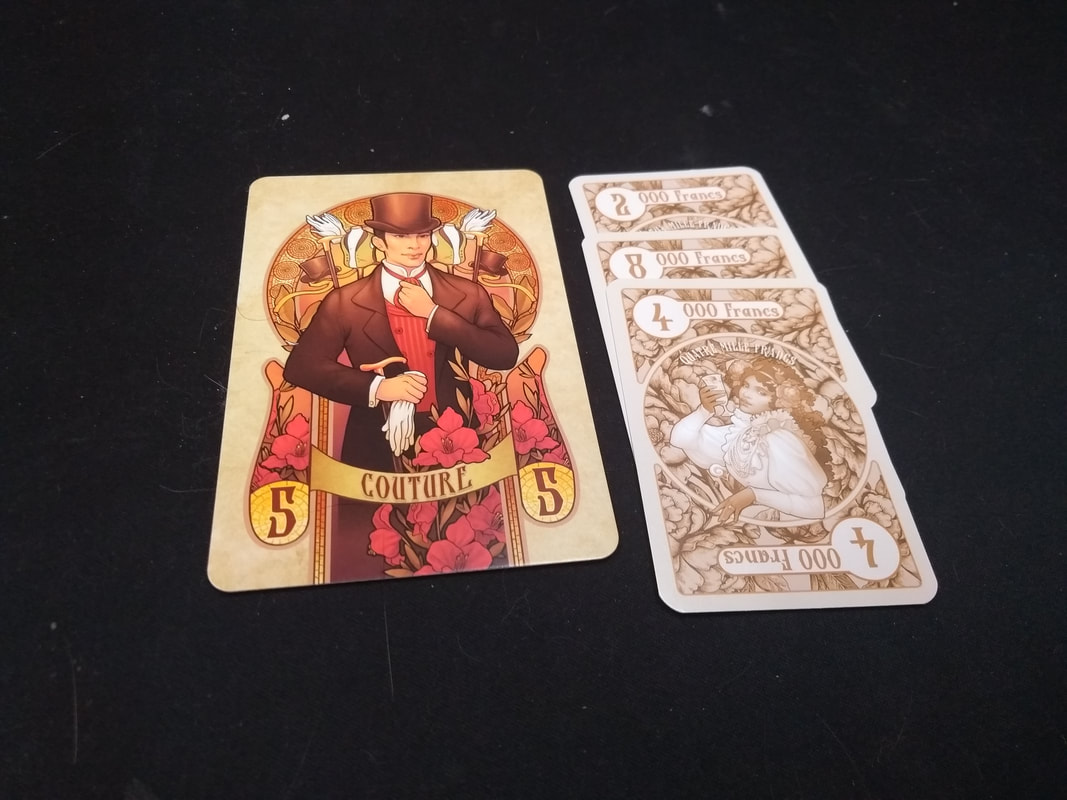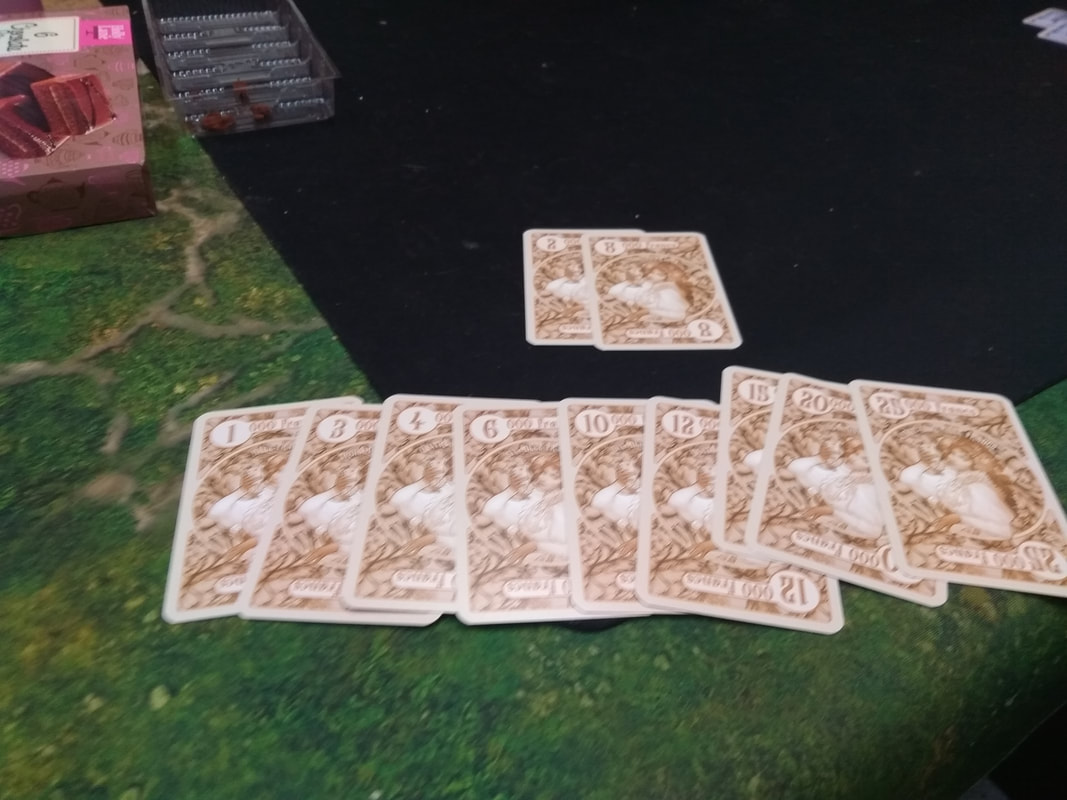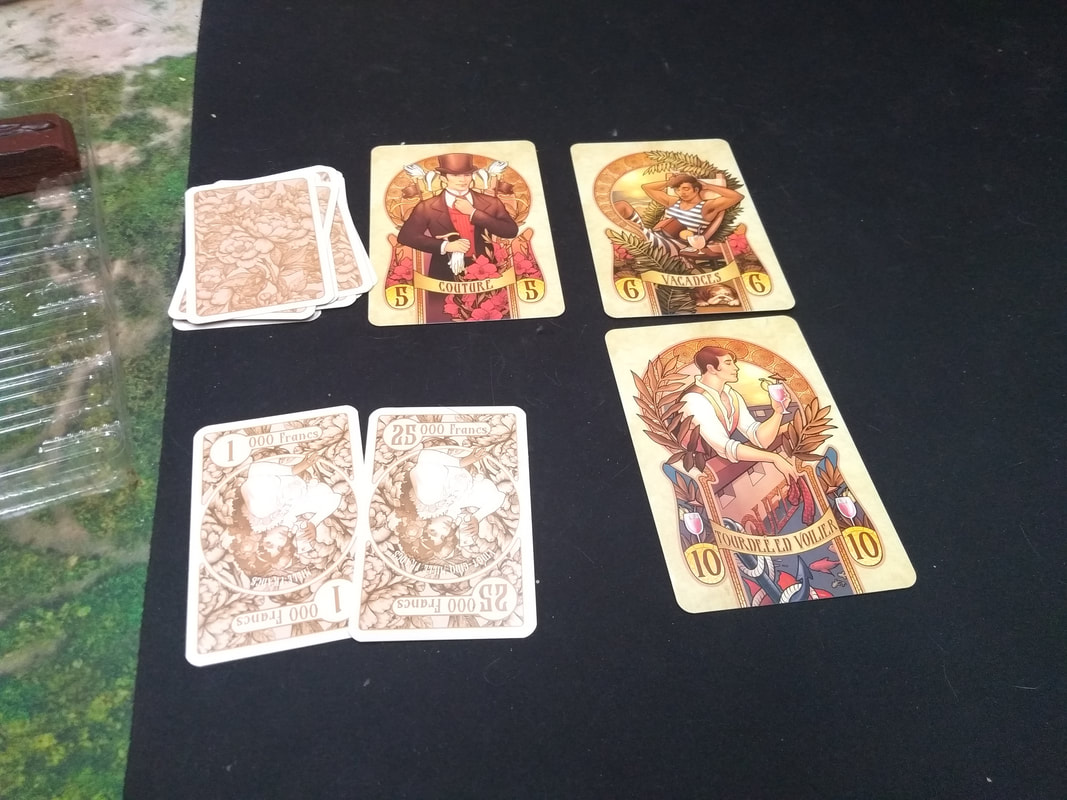|
16th November 2019 Saturday night gaming at 'Matakishi's' continues. The second game of the evening was 'High Society'. Some people are just obsessed with reputation, luxury, wealth and prestige and will pay anything to elevate it. Well almost anything. These are the trials and tribulations 'endured' by the aspiring wealthy and privileged, where image is everything. What's in a game? High Society has broadly speaking 2 types of card.
How's it play? First give each player a 11 card bidding deck. Then shuffle the status cards to form a deck and determine a starting player.
Endgame 4 cards in the status are coloured green, they are the 3 prestige cards and one of the scandal cards. When the 4th green card is drawn, the game ends immediately - there is no bidding on the 4th green. Next is the game's sting in the tail. The player who has the least amount of money in their hand is eliminated from the endgame! The remaining players total the value of their luxury cards and modify them by any prestige/scandal cards they have. Highest score wins. Overall
There's a few clever little things to think about here. Because a player can only add to their bid, players will be faced with tricky choices. If you really want a card a card, do you bid low hoping other players won't try and out bid you? Or do you start with a high bid hoping to discourage others and use less cards. For example: Using a 4 and 6 is worse than using a 10, even though they have the same value, in the first case you're using up 2 cards instead of 1 - and you can't bid if you don't have cards. Also; there's nothing more infuriating then when you want to push up a bid by 1 or 2 and you've got nothing less than a 5 in your hand. The endgame mechanic adds an extra level of unpredictability to the game. A game can last anywhere from 3 to 15 rounds. Players will know when there's a chance that the game will end because they'll see that 3 green cards have been played, but they won't know exactly when the end is coming. All of this can affect how you bid. Finally, there's the player elimination in the endgame. The sting in the tail that constantly niggles and lingers in the back of every player's mind when they're playing. It doesn't matter how well a player has done in the bidding if they're eliminated for having the least money. It is painful. All in all, High Society is a quick to learn game that is quite fast to play and makes an excellent filler game. It's mechanics push players into making meaningful and tricky decisions. Other than constant stress, what's not to like?
0 Comments
Leave a Reply. |
AuthorI play, I paint. Archives
March 2024
Categories
All
|





 RSS Feed
RSS Feed
